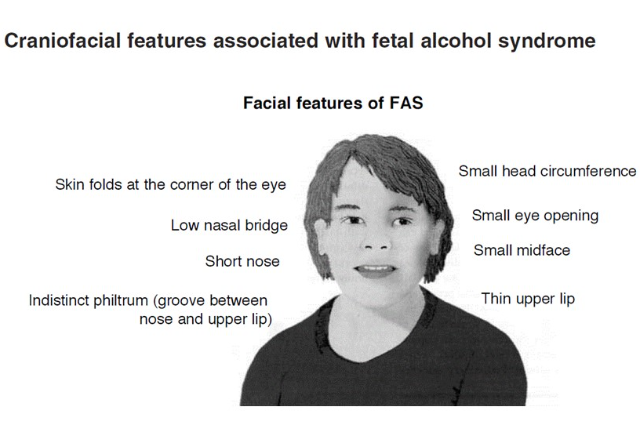
Photo by Annie Spratt on Unsplash
Introduction
Pregnancy is mostly spanning for nine months and it is a period when a woman carries a developing embryo and foetus in her womb. However, this phase poses health risks for both the mother and the growing foetus. Various factors such as inadequate nutrition, timing of pregnancies, maternal age, lifestyle habits (like smoking, alcohol consumption, drug use, being overweight or obese) and insufficient prenatal care; can impact pregnancy outcomes. Maternal alcohol consumption during pregnancy can harm the central nervous system and other organs of the developing embryo and foetus, with the severity of effects dependent on factors such as the amount of alcohol consumed, duration of exposure, and the developmental stage of the embryo at the time of exposure.
The harmful impact of alcohol consumption during pregnancy is widely acknowledged which leads to strict recommendations against it for pregnant women. However, the effects of alcohol intake during breastfeeding have not been extensively been studied, resulting in limited clarity on this subject. In the past, there was a common belief that alcohol could be beneficial during breastfeeding, with many women encouraged to drink to relax, promote lactation, and improve infant sleep. This belief has somewhat diminished in recent years in favour of a more cautious approach but remnants of it still exist, causing confusion and concern among new mothers.
Alcohol consumption during pregnancy is known to cause Fetal Alcohol Syndrome (FAS) in humans, characterized by growth deficiencies, microcephaly, and central nervous system dysfunction. Similarly, the intake of alcohol during pregnancy can lead to Fetal Alcohol Spectrum Disorders (FASD), a range of birth defects resulting from parental alcohol consumption during pregnancy. Individuals affected by FASD may have reduced brain volume, neuronal function, leading to long-term learning and behavioural difficulties. This decrease in brain volume and neuronal damage is attributed to alcohol-induced neurodegeneration through programmed cell death.
FAS: Is it a deformity resulting from alcohol abuse during pregnancy?
Fetal Alcohol Syndrome (FAS) encompasses a distinct set of congenital malformations, including central nervous system dysfunction, growth deficiencies, and facial characteristics. Central nervous system issues range from mild to moderate mental retardation, microcephaly, irritability, jitteriness, and poor sucking response. Hyperactivity, developmental delays, and perceptual-motor disturbances are also common. Despite adequate foster care and treatment, IQ scores tend to remain adversely affected with minimal improvement over time.
Growth deficiencies often result due to a decrease in head circumference, low birth weight, and shorter birth length. Despite adequate levels of growth hormones at birth, FAS children typically remain smaller than average for their age. Facial characteristics in FAS children present from birth include short eye slits, a low nasal bridge, a thin upper lip, drooping eyelids, a small chin, and a flat face with a short nose. The severity of these facial effects varies but there is a notable resemblance among FAS children regardless of familial relationship or race.
Additional characteristics may include minor joint defects, altered palmar crease patterns, heart defects, minor genital anomalies, and failure to thrive. There are suggestions of renal and liver abnormalities, neural tube defects, eye and ear defects, heart murmurs, genitourinary anomalies, and hernias in FAS children. However, these abnormalities can also occur individually in the absence of maternal drinking.
Diagnosis of FAS typically requires the presence of specific criteria, such as growth retardation, abnormal facial features, and central nervous system abnormalities. Determining safe levels of alcohol consumption during pregnancy remains a challenge for researchers due to difficulties in obtaining reliable drinking histories and identifying abusive drinking patterns.
Effect of alcohol consumed by a mother during the lactation period
Alcohol consumed by a lactating mother can enter breast milk within 30 to 60 minutes after ingestion, potentially causing detrimental effects on the infant depending on the amount consumed. Studies have shown that even low levels of alcohol intake during breastfeeding are equivalent to two standard drinks per day and can result in difficulties in motor development, reduced lactation performance and disrupted sleep-wake patterns in infants.
Despite these adverse effects, there is limited data on the postnatal consequences of alcohol in breast milk on newborn development. In contrast, the potential negative effects of alcohol intake on the developing foetus are well recognized. Some studies suggest that alcohol intake decreases during pregnancy but often returns to pre-pregnancy levels or even increases, shortly after birth. Additionally, some healthcare professionals including doctors, nurses, and lactation advisors may even recommend an increase in alcohol consumption for breastfeeding mothers in certain cases which will further complicate the issue.
Study of “Alcohol Clinical and Experimental Research”: Credible or still require research
The study, published in "Alcohol Clinical and Experimental Research”, mainly dealt with the potential effects of low to moderate alcohol consumption during pregnancy, a more common scenario than heavy drinking. The study found these lower levels of alcohol use might be linked to subtle changes in a baby's development before birth.
Researchers observed potential connections between such alcohol consumption and slightly altered development in the womb. Interestingly, these effects seemed more pronounced for gestational age in male babies and birth length in females but the researchers caution that these findings still need further investigation. The study acknowledges limitations. It highlights the challenges of definitively separating the effects of alcohol from other factors influencing development. Additionally, the statistical analysis might not be robust enough to draw strong conclusions about sex-specific differences. This research focuses on moderate drinking because it's more widespread compared to heavy drinking, which has been more extensively studied. It was noted from even previous research that heavy drinking can negatively impact factors like birth, growth issues, and brain development in the baby.
Early pregnancy is crucial for organ formation in the foetus and makes it especially sensitive to potential harm from alcohol exposure. The study emphasises the importance of understanding drinking patterns around and early pregnancy since many women might consume alcohol unknowingly before realising they're pregnant. Although most participants significantly reduced or stopped drinking entirely upon learning they were pregnant and the study suggests that even this lower level of alcohol intake might have contributed to some developmental defects in both male and female babies.
The researchers call for larger studies involving collaborations across the country to confirm these findings and delve deeper into potential sex-specific effects on the development of babies. Overall, this study highlights the potential for even low to moderate alcohol consumption during pregnancy to influence a baby's development before birth. It emphasizes the need for further research while also emphasizing the importance of avoiding alcohol throughout pregnancy as a precautionary measure.
No alcohol is the safest choice for pregnant mother
This part mainly will emphasize the critical importance of avoiding alcohol consumption entirely during pregnancy. It highlights several key points:
- Complete Abstinence: Regardless of whether a mother is currently pregnant, trying to conceive or suspect pregnancy ; the safest approach is to completely abstain from alcohol. This eliminates any potential risk of Fetal Alcohol Spectrum Disorders (FASDs) or other health issues directly linked to alcohol exposure in the womb.
- Prenatal Care: Regular prenatal checkups with the healthcare provider are crucial throughout pregnancy. These visits allow for monitoring of health and the baby's development.
- Support for Stopping Alcohol Use: If any woman is struggling to stop drinking alcohol then they shouldn’t hesitate to seek help from the healthcare provider. They can offer support and resources to assist in quitting and ensure a healthy pregnancy for the mother as well as the baby.
Lastly, it is important to remember that even a small amount of alcohol can potentially affect a baby's development. By prioritizing complete abstinence and seeking support when needed ultimately the mother is giving her baby the best chance for a healthy start to life.
Conclusion
The global rise in alcohol consumption presents a significant public health concern, particularly regarding its impact on vulnerable populations like pregnant women and breastfeeding mothers. Social gatherings and celebratory events often normalize excessive alcohol intake which results in blurring the lines between moderate consumption and harmful patterns. This article delves deeper into the critical issue of alcohol consumption during pregnancy and lactation. Highlighting its detrimental effects on both the mother and the developing child. Social pressures, cultural norms, or even a lack of readily available support systems might contribute to the persistence of alcohol consumption during pregnancy. In conclusion, while the rising trend of alcohol consumption is concerning, the particular threat it poses to pregnant women and breastfeeding mothers requires immediate attention. A concentrated effort is needed to bridge the gap between awareness and action, ensuring the health and well-being of both mothers and their children. By prioritizing education, support systems, and responsible social norms, we can create a world where celebration or even alcohol consumption doesn't come at the cost of a child's future.
. . .
References:

